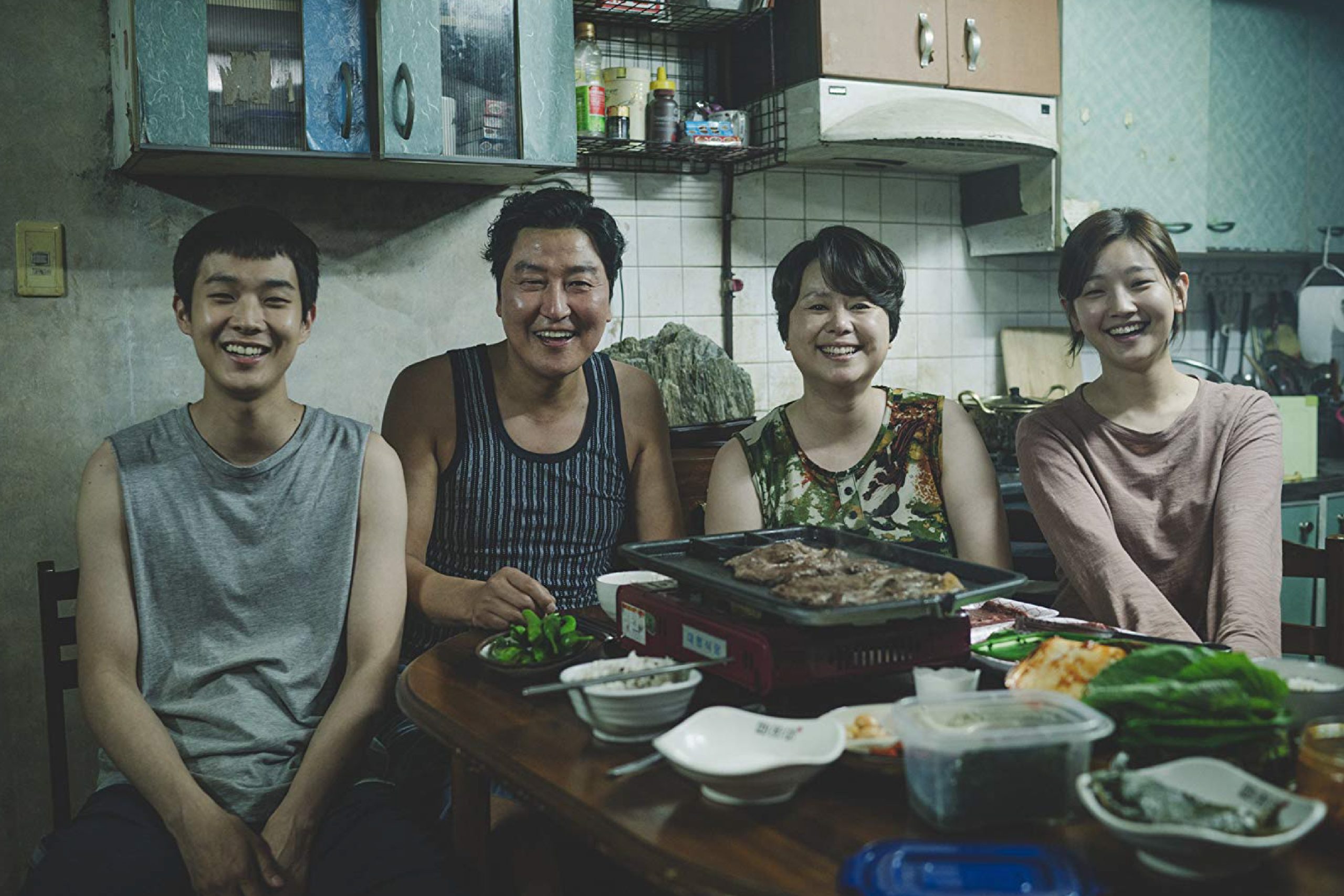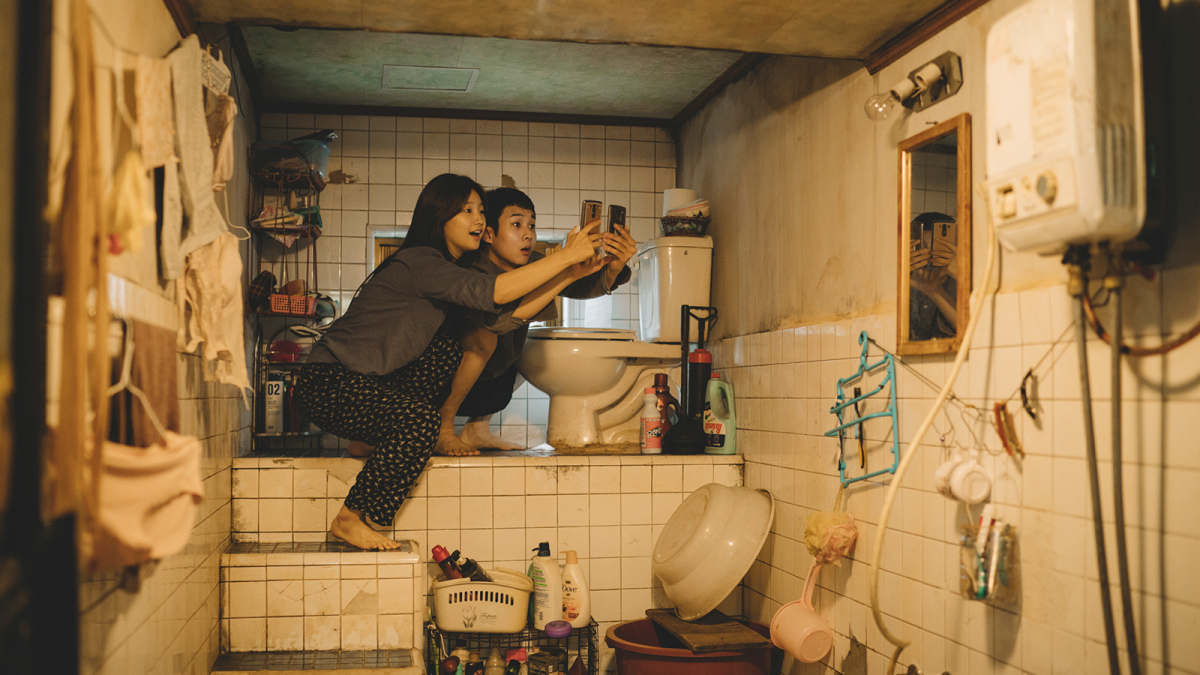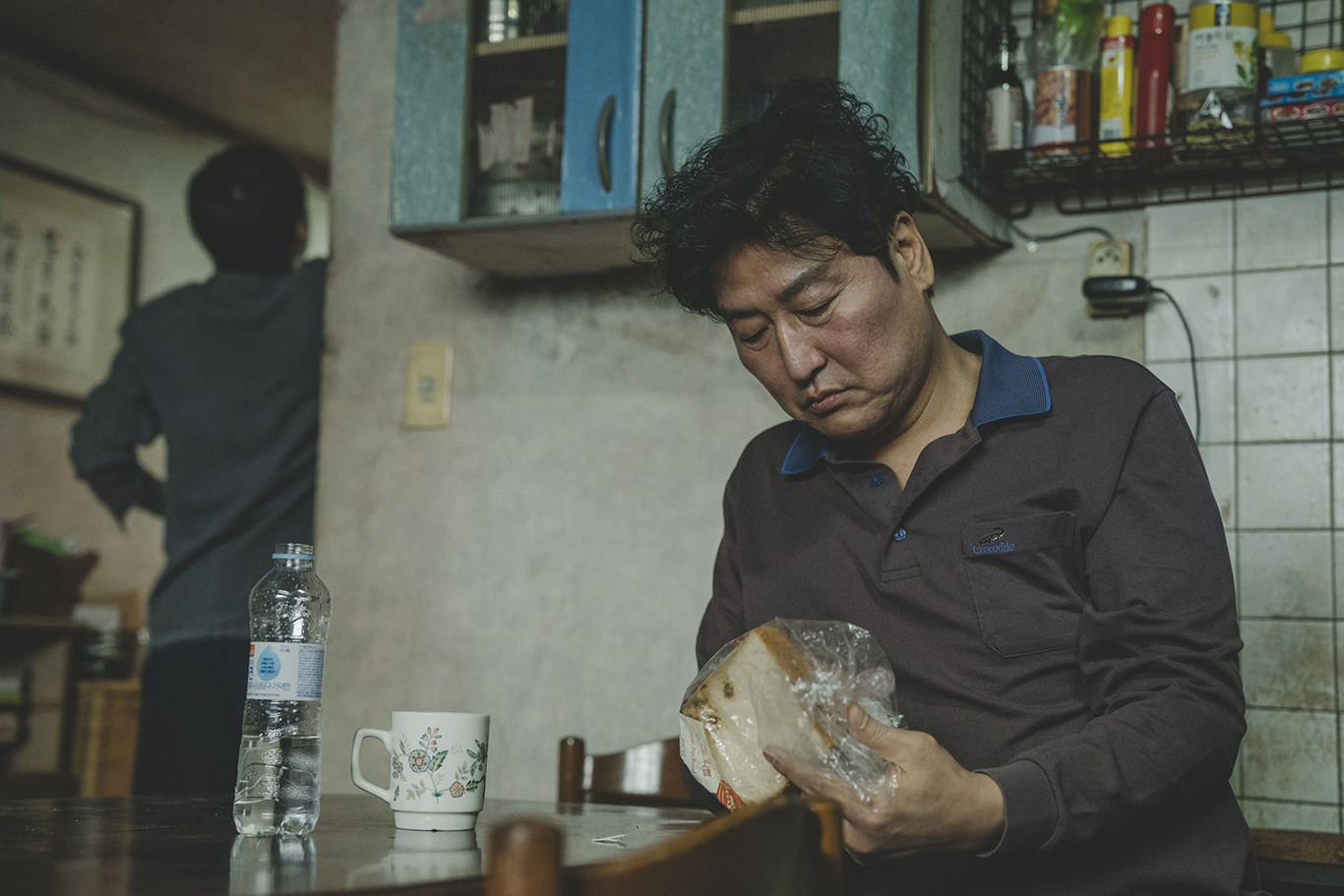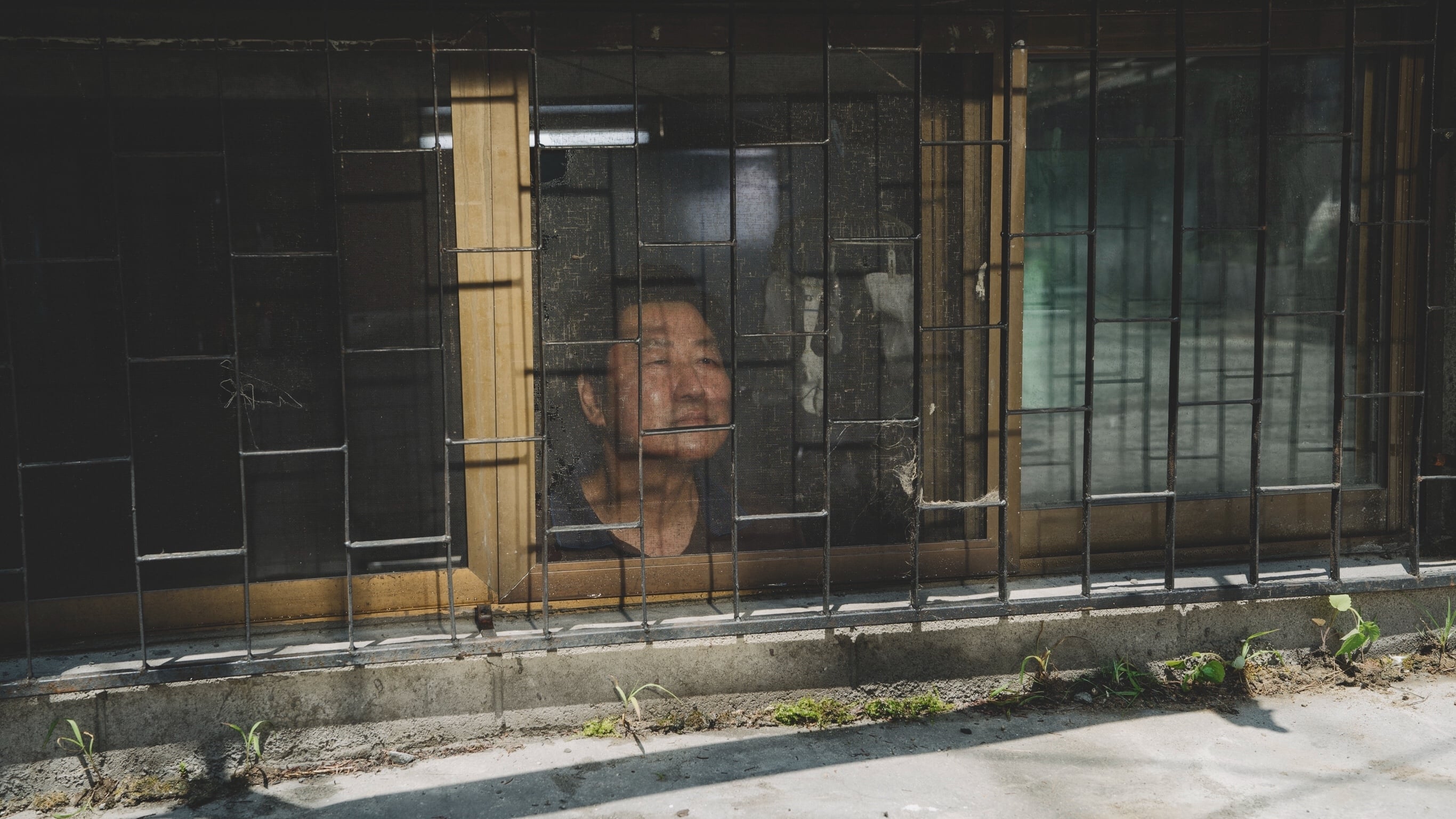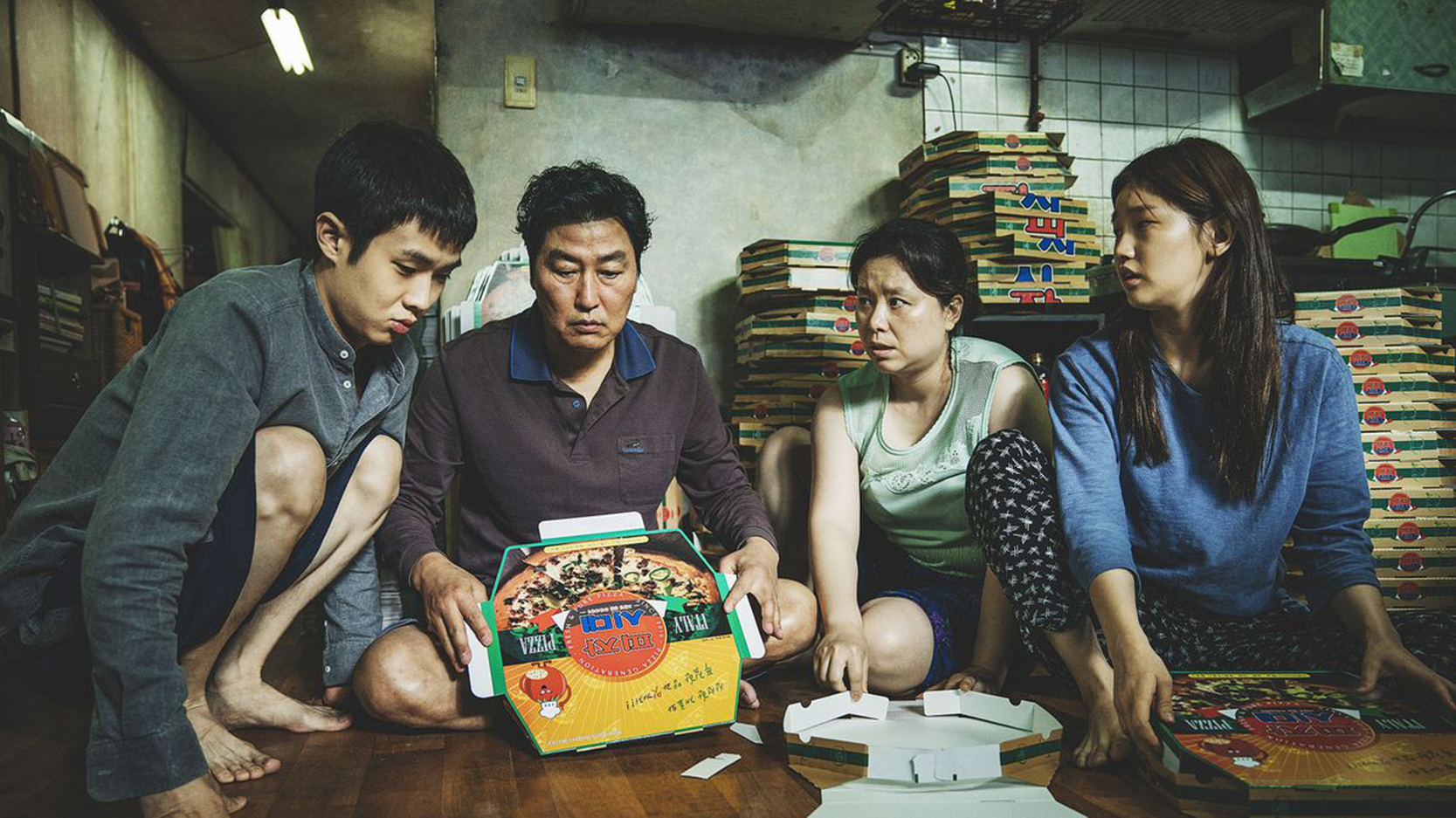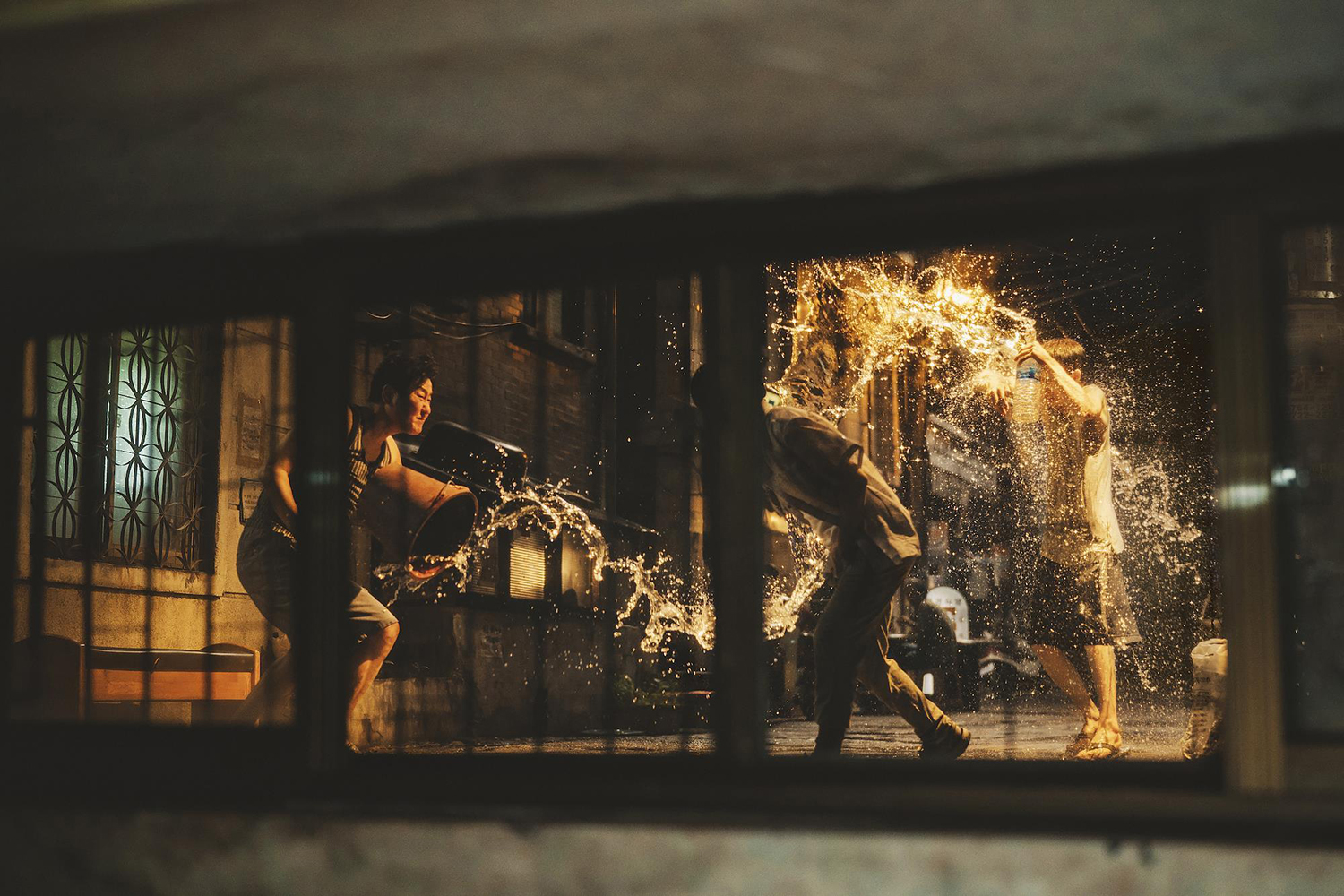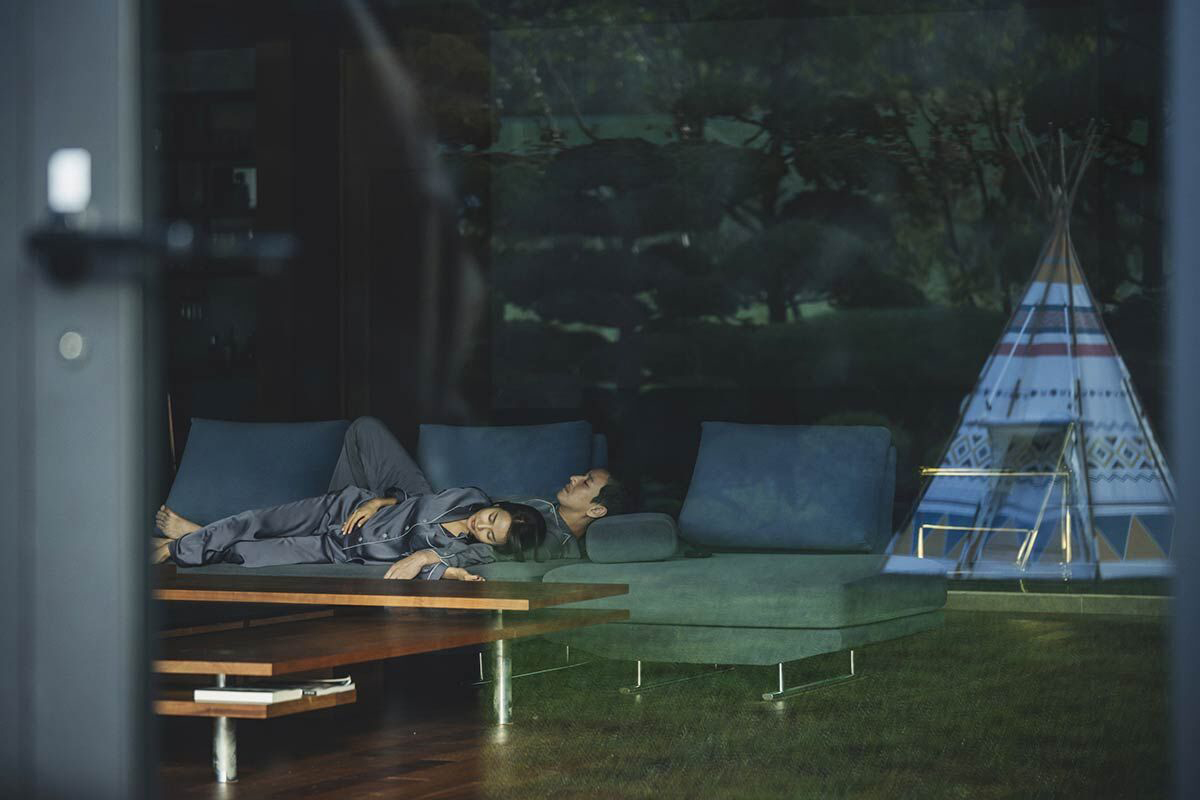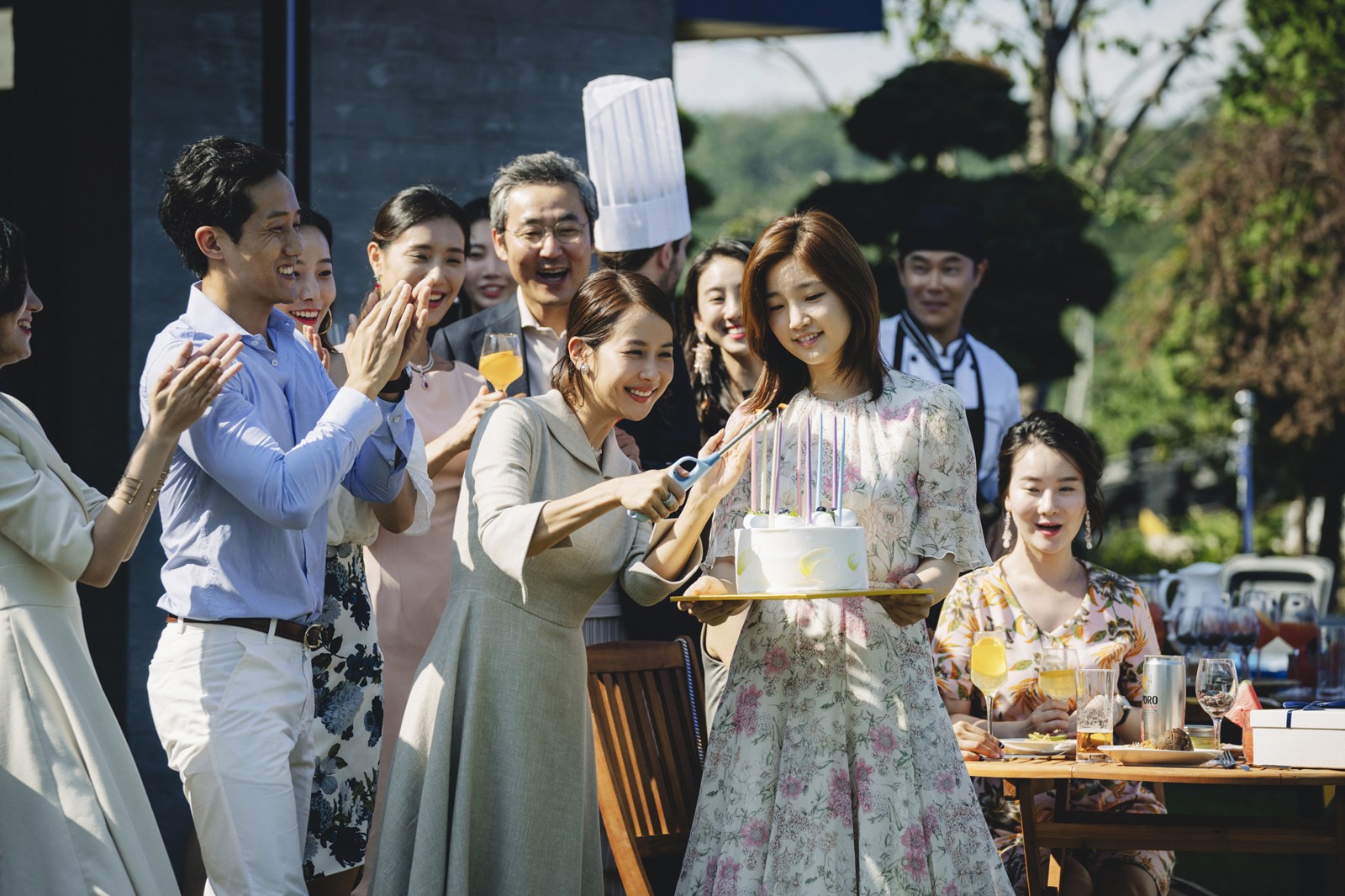THE LATEST FILM BY BONG JOON-HO LIVES UP TO THE HYPE. A HYBRID OF A DRAMA AROUND SOCIAL INEQUALITY TAKES THE AUDIENCE THROUGH ITS COMPLICATED DIMENSIONAL NARRATIVE
TEXT: PRATARN TEERATADA
PHOTO: © 2019 CJ ENM CORPORATION, BARUNSON E&A
(For English, please scroll down)
ในที่สุดก็ได้ดู Parasite ฝีมือผู้กำกับ Bong Joon-ho จนได้ หนังร้ายกาจสมคำร่ำลือจริงๆ เป็นหนัง hybrid ผสมเอาดราม่าเกี่ยวกับความเหลื่อมล้ำทางชนชั้นมาขับเคลื่อนการรับรู้ของผู้ชมอย่างมีมิติทับซ้อนหลายชั้น เขย่าอารมณ์ด้วยฉาก thriller ได้ตรงจังหวะ แล้วห่อหุ้มด้วย dark comedy ที่แสนจะครีเอทีฟ เช่นเดียวกับ art direction ที่ก็ไปได้สุดทางมาก
เราได้เห็นบ้านเศรษฐีกับวิวสวนส่วนตัวที่งดงามราวกับภาพเขียนฝีมือจิตรกรชั้นนำ ตัดสลับกับบ้านชนชั้นล่าง ห้องใต้ถุนต่ำกว่าระดับพื้นดินที่ให้ความรู้สึกห่างชั้นกันลิบลับ เราชอบฉากระหว่างทางที่พวกครอบครัว Kim เดินฝ่าฝนกลับไปบ้าน ก่อนพบว่าน้ำกำลังทะลักท่วมบ้านของตน (ก่อนหน้านั้นพวกเขายังมีความสุขกับสายฝนอยู่เลย) มันมีความเครียด ความขำ และความงาม ไปพร้อมๆ กันจนบรรยายไม่ถูก บทสนทนาระหว่างตัวละครยิ่งโดนใจ โดยเฉพาะเรื่องกลิ่นของชนชั้นซึ่งไปๆ มาๆ กลายเป็นชนวนนำไปสู่จุดหักเหเปลี่ยนชีวิตตัวละครหลักเลยทีเดียว
ทันทีที่เพื่อนของ Ki-woo แวะมาเยี่ยมถึงบ้านที่อยู่ใต้ระนาบถนนที่ต่ำกว่าคนทั่วไปพักอาศัยกันด้วยซ้ำ สิ่งที่เขานำมาด้วยคือ ก้อนหิน Suseok ของสะสมสำหรับคนชั้นกลางที่มีเวลาชื่นชมคุณค่าของหินที่มีลวดลายบนผิวคล้ายภูเขาจำลอง ในมุมมองของคนที่มีความต้องการเฉพาะหน้ามากกว่าสุนทรียภาพของการสะสมหินอายุยาวนานเป็นงานอดิเรกอย่างแม่ของ Ki-woo จึงไม่ผิดเลยที่เธอมองมันว่าเป็นสิ่งฟุ่มเฟือย ไม่มีความจำเป็นต่อชีวิตจนถึงกับบ่นว่า “น่าจะเอาของที่กินได้มาให้มากกว่า” หากแต่หินสะสมนั้นก็นำมาซึ่งความเป็นไปได้ใหม่ๆ ในชีวิตของ Ki-woo และครอบครัว นั่นคือการให้คุณค่าและความหมายต่อสิ่งใดสิ่งหนึ่ง
Bong Joon-ho พาผู้ชมโลดแล่นไปกับความบันเทิงในการให้คุณค่าต่างๆ ของคนสองชนชั้นตลอดทั้งเรื่อง นอกจากหินสะสมแล้วสิ่งที่เพื่อนส่งต่อมายัง Ki-woo คือโอกาส ที่จะต่อยอดและได้ไปต่อ พวกเขาเพียงแค่อยากเกาะเกี่ยวความสมบูรณ์พูนสุขเพียงเล็กน้อยจากครอบครัว Park
ในสังคมที่เหลื่อมล้ำ ไม่เท่าเทียมกัน มนุษย์อาจจำเป็นต้องหาสิ่งยึดเหนี่ยว หรือแหล่งเพิ่มพูนจินตนาการเพื่อให้ชีวิตดำเนินต่อไป ก้อนหินโบราณ รหัสมอร์ส และวัฒนธรรมอินเดียนแดง เหล่านี้ล้วนเป็นตัวแทนของคุณค่าและรูปแบบการสื่อสารที่ถูกละทิ้งไปแล้วในโลกปัจจุบัน กระทั่งมันไปปรากฏในห้องลับใต้ดินที่ไม่มีใครคิดว่าจะไปใช้ชีวิตในนั้นจริงๆ ราวกับไม่มีมันอยู่ในบ้านด้วยซ้ำไป สัญญะที่ชวนขันอีกชิ้นหนึ่งเห็นจะเป็นบะหมี่จาปากุริ ที่คุณนาย Park โทรมาสั่งให้แม่บ้านปรสิตทำด่วนๆ ขณะจะกลับถึงบ้านภายในเวลา 8 นาทีตามที่ Google Maps แจ้ง จาปากุริเป็นบะหมี่สำเร็จรูปสองชนิดปนกันเพียงแต่ใส่เนื้อราคาแพงเข้าไปก็กลายเป็นอาหารชนชั้นมีอันจะกินแล้ว …
ในตอนท้าย Ki-woo ตั้งใจเปลี่ยนความหมายของหินสะสมที่ได้มาให้เป็นอาวุธจัดการกับปัญหาที่เกิดขึ้น แต่แล้วหินก้อนนั้นกลับกลายเป็นอาวุธทำร้ายตัวเขาเองจากปรสิตตัวก่อน หนังที่ทั้งเรื่องไม่มีตัวร้ายจริงๆ จังๆ เลย กลับดันเกิดเรื่องร้ายๆ รุนแรงขึ้นมาได้ ผู้กำกับคล้ายตั้งใจจะบอกกับเราว่าชีวิตมักมีเรื่องคาดเดาไม่ได้เกิดขึ้นเสมอ

I finally got a chance to see Parasite. The latest film by Bong Joon-ho lives up to the hype. A hybrid of a drama around social inequality takes the audience through its complicated dimensional narrative while keeping them on the edge with the element of thriller that seems to hit right where it should be, all wrapped up in a super creative dark comedy and extremely impressive art direction.
The film cuts between two settings, an expensive mansion with a private view that looks almost like a painting of some masterful painter, and a house of a low-income family and its underground room, emphasizing the gap between the two households. I personally like the scene where the Kims are walking home through the rain before finding out that their home is being heavily flooded (they were happily enjoying the rain only a moment ago). It’s the scene filled with tension, comedy, and beauty all at the same time, and it’s an indescribable feeling to watch. The dialogues hit me hard especially when the topic of social class lingers the air before it eventually becomes the cause of the main character’s turning point.
As soon as Ki-woo’s friend arrives at the underground house (the house is situated at the level that is even lower than ordinary people’s homes) for a visit, brought with him is Suseok stone, a toy for the bourgeois who have enough time to appreciate the value and pattern of the mountain-shaped stone. From the perspective of someone whose urgency extends beyond appreciating the artistry of collectible stones such as Ki-woo’s mother, we hardly blame her for thinking of the object as something of vanity that is almost worthless to the life they are living. “He should have brought something we could eat,” she complains. But the stone does bring new possibilities to Ki-woo’s life and his family—the value and meaning given to a certain thing.
Bong Joon-ho takes viewers on a wide ride, keeping us entertained by the different sets of values upheld by people from two different social statues. Aside from the stone, what his friend passes on the Ki-woo is a chance to continue; to move forward, for all they want is to tag along with a tiny fragment of the Park’s perfect life and affluence.
In this unfair society, humans struggle to find things to hold on to; things that help them imagine a better life in order for them to keep on living. The ancient stone, Morse code, Native American culture; all these things represent the values and means of communication that have long been forgotten by the modern world, until they reappear in a secret underground chamber where nobody has ever imagined living in it and whose existence becomes almost nonexistent to the memory of everyone in the family. Another funny bit of symbolism is the scene where Mrs. Park called and ordered her parasite maid to make Jjapaguri noodles, giving her the total time of 8 minutes to prepare before she gets home (the time calculated by Google Maps). Jjapaguri is Korean Instant Noodle dish that combines two types of noodles, Jjapaghetti and Neoguri. With an addition of an expensive piece of meat, the ‘steak ramen’ is considered ‘rich people food’.
In the end, when Ki-woo is trying to change the meaning of the acquired ancient stone into a weapon, just to deal with the whole mess that has been going on, the stone ends up being used by the previous parasite to hurt him. The film with no actual villain insight takes a turning point and something bad finally happens. It was as if the director was trying to tell us that life is always full of the unexpected.

